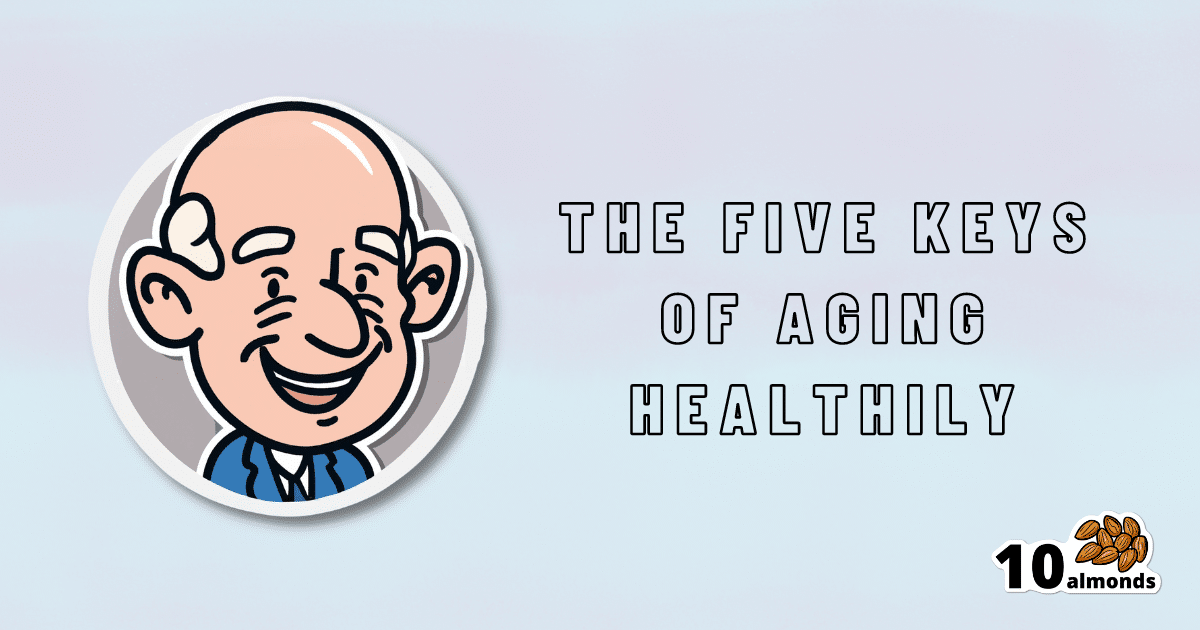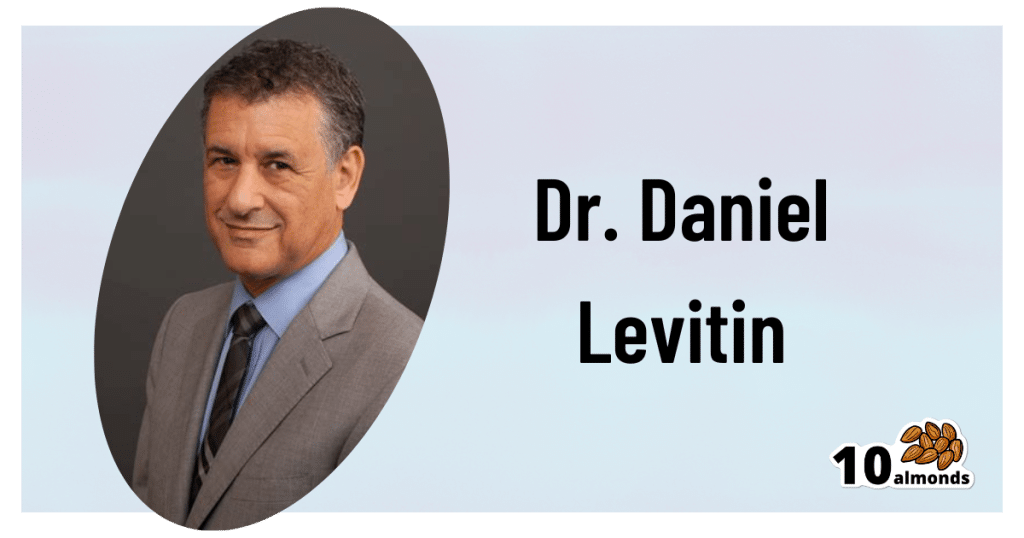The Five Key Traits Of Healthy Aging
The Five Keys Of Aging Healthily: Dr. Daniel Levitin shares the “COACH” traits for healthy longevity in old age – curiosity, openness, associations, conscientiousness, and healthy practices.

The Five Keys Of Aging Healthily

This is Dr. Daniel Levitin. He’s a neuroscientist, and his research focuses on aging, the brain, health, productivity, and creativity. Also music, and he himself is an accomplished musician also, but we’re not going to be focusing on that today.
We’re going to be looking at the traits that, according to science, promote healthy longevity in old age. In other words, the things that increase our healthspan, from the perspective of a cognitive scientist.
What does he say we should do?
Dr. Levitin offers us what he calls the “COACH” traits:
- Curiosity
- Openness
- Associations
- Conscientiousness
- Healthy practices
By “associations”, he means relationships. However, that would have made the acronym “CORCH”, and decisions had to be made.
Curiosity
Leonardo da Vinci had a list of seven traits he considered most important.
We’ll not go into those today (he is not our featured expert of the day!), but we will say that he agreed with Dr. Levitin on what goes at the top of the list: curiosity.
- Without curiosity, we will tend not to learn things, and learning things is key to keeping good cognitive function in old age
- Without curiosity, we will tend not to form hypotheses about how/why things are the way they are, so we will not exercise imagination, creativity, problem-solving, and other key functions of our brain
- Without curiosity, we will tend not to seek out new experiences, and consequently, our stimuli will be limited—and thus, so will our brains
Openness
Being curious about taking up ballroom dancing will do little for you, if you are not also open to actually trying it. But, openness is not just a tag-on to curiosity; it deserves its spot in its own right too.
Sometimes, ideas and opportunities come to us unbidden, and we have to be able to be open to those too. This doesn’t mean being naïve, but it does mean having at least a position of open-minded skepticism.
Basically, Dr. Levitin is asking us to be the opposite of the pejorative stereotype of “an old person stuck in their ways”.
Associations
People are complex, and so they bring complexities to our lives. Hopefully, positively stimulating ones. Without them to challenge us (again, hopefully in a positive way), we can get very stuck in a narrow field of experience.
And of course, having at least a few good friends has numerous benefits to health. There’s been a lot of research on this; 5 appears to be optimal.
- More than that, and the depth tends to tail off, and/or stresses ensue from juggling too many relationships
- Fewer than that, and we might be only a calendar clash away from loneliness
Friends provide social stimulation and mutual support; they’re good for our mental health and even our physiological immunity (counterintuitively, by means of shared germs).
And, a strong secure romantic relationship is something that has been found time and again to extend healthy life.
Note: by popular statistics, this benefit is conferred upon men partnered with women, men partnered with men, women partnered with women, but not women partnered with men.
There may be a causative factor that’s beyond the scope of this article which is about cognitive science, not feminism, but there could also be a mathematical explanation for this apparent odd-one-out:
Since women tend to live longer than men (who are also often older than their female partners), women who live the longest are often not in a relationship—precisely because they are widows. So these long-lived widows will tend to skew the stats, through no fault of their husbands.
On the flipside of this, for a woman to predecease her (statistically older and shorter-lived) husband will often require that she die quite early (perhaps due to accident or illness unrelated to age), which will again skew the stats to “women married to men die younger”, without anything nefarious going on.
Conscientiousness
People who score highly in the character trait “conscientiousness” will tend to live longer. The impact is so great, that a child’s scores will tend to dictate who dies in their 60s or their 80s, for example.
What does conscientiousness mean? It’s a broad character trait that’s scored in psychometric tests, so it can be things that have a direct impact on health, such as brushing one’s teeth, or things that are merely correlated, such as checking one’s work for typos (this writer does her best!).
In short, if you are the sort of person who attends to the paperwork for your taxes on time, you are probably also the sort of person who remembers to get your flu vaccination and cancer screening.
Healthy practices
This means “the usual things”, such as:
- Healthy diet (Mediterranean Diet consistently scores up top)
- Good exercise (especially the tendency to keep moving in general)
- Good sleep (7–9 hours, no compromises)
- Not drinking (or at least only very moderate consumption, but the only safe amount is zero)
- Not smoking (just don’t; there is no wiggle room on this one)
Want to learn more?
You can check out his book, which we reviewed all so recently, and you can also enjoy this video, in which he talks about matters concerning healthy aging from a neuroscientist’s perspective, ranging from heart health and neurodegeneration, to the myth of failing memory, to music and lifespan and more:
Share This Post
Learn To Grow
Sign up for weekly gardening tips, product reviews and discounts.




